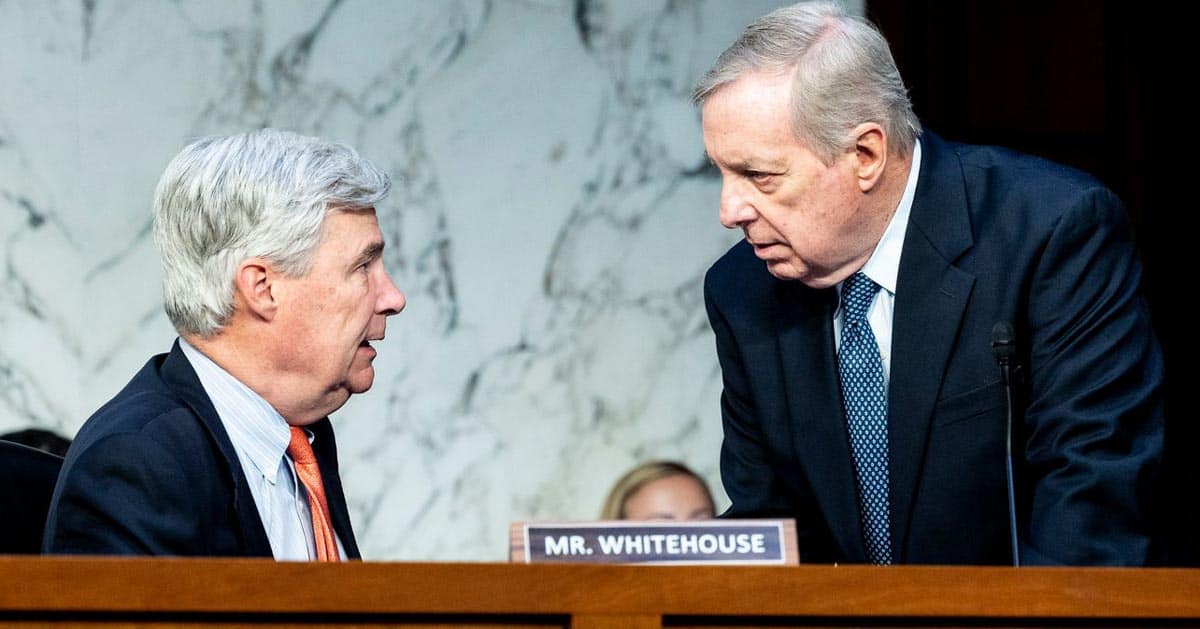The U.S. Supreme Court has refused to review the Texas two-step bankruptcy of a Georgia-Pacific company.
The high court’s decision maintains a legal shield that has been criticized by some U.S. senators and state attorneys general for allowing the company to evade lawsuits.
A North Carolina bankruptcy court order that prohibits cancer victims from bringing legal action against materials manufacturer Georgia-Pacific has been upheld by the Supreme Court’s ruling, as Reuters reported.
Meanwhile, Georgia-Pacific’s subsidiary, Bestwall, remains in bankruptcy.
In January, Senators Dick Durbin (D-IL), Sheldon Whitehouse (D-RI), and Josh Hawley (R-MO) filed an amicus brief to help bring before the Supreme Court the dispute between Georgia-Pacific and cancer and mesothelioma victims who claim they suffered from asbestos poisoning after using the manufacturer’s products.
Georgia-Pacific refutes the allegations in tens of thousands of lawsuits that its products, including plasterboard adhesive and other construction materials, contained asbestos and caused cancer.
Cancer victims’ attorneys filed an appeal of the bankruptcy court order halting litigation against Bestwall’s parent company, Georgia-Pacific, on the grounds that they were entitled to prosecute the non-bankrupt company.
In June 2023, the bankruptcy court’s order was affirmed by the 4th U.S. Circuit Court of Appeals, which determined that the litigation should be halted to provide Bestwall with an opportunity to restructure and resolve the disputes via bankruptcy.
The attorneys for the plaintiffs filed a petition for review with the Supreme Court in December 2023, subsequent to the 4th Circuit’s denial of their petition for a complete court hearing.
“The issue of whether a fully solvent company can use the bankruptcy courts to renegotiate its liabilities is something that the Supreme Court will ultimately have to weigh in on,” said Michael Shepard, an attorney representing cancer victims in the case.
Additionally, he stated that the court’s denial of the petition does not necessarily indicate a reluctance to consider the Texas two-step at a later time.
A predominantly Democrat group of twenty-four state attorneys general and three U.S. senators cited the Bestwall case as an example of bankruptcy abuse.
They urged the court to hear the appeal and prohibit wealthy corporations like Georgia-Pacific from evading lawsuits by utilizing bankrupt shell entities.
Georgia-Pacific was an innovator in 2017 when it implemented the Texas two-step legal strategy, so named due to its application of the Texas “divisional merger” law, to transfer its asbestos liabilities to a newly established subsidiary, Bestwall.
Subsequently, Bestwall initiated bankruptcy proceedings in North Carolina.
As of the filing date, the organization was confronted with 64,000 asbestos-related legal actions.
In amicus briefs, the senators and state attorneys general contend that Georgia-Pacific, a corporation valued at tens of billions of dollars, is exploiting the U.S. bankruptcy system.
The company is accused of trying to shield its assets from plaintiffs whose litigation it has instigated against its products by halting the progression of their claims.
Meanwhile, Georgia-Pacific is avoiding resorting to initiating bankruptcy proceedings itself.
Bankruptcy, according to Georgia-Pacific and other corporations that have utilized the strategy, is a more efficient and fair method of compensating victims in mass tort cases.
The Supreme Court is already considering how far bankruptcy courts can go to protect non-bankrupt company owners in an appeal of Purdue Pharma’s bankruptcy plan.
The court heard arguments in December on whether a bankruptcy court has the power to stop lawsuits against Purdue’s owners, members of the wealthy Sackler family, as part of a settlement of litigation alleging the company fueled the U.S. opioid epidemic through its marketing of the painkiller OxyContin.
Purdue has pleaded guilty to charges related to its opioid marketing.
The Sackler family, meanwhile, has expressed regret but denied wrongdoing.
The case is Official Committee of Asbestos Claimants v. Bestwall LLC, U.S. Supreme Court, No. 23-675.
READ MORE – Renowned Oncologist Drops Bombshell: Ivermectin Cures Cancer

Our comment section is restricted to members of the Slay News community only.
To join, create a free account HERE.
If you are already a member, log in HERE.
Recommended